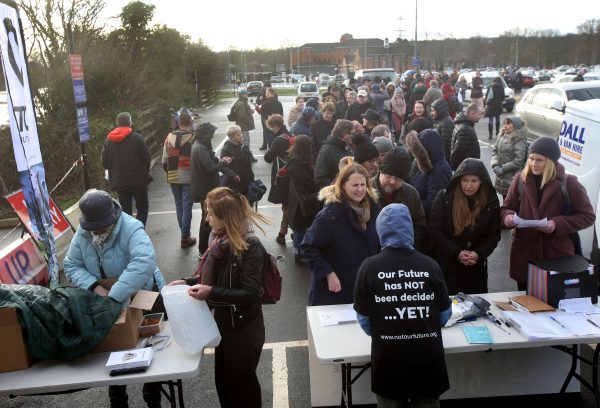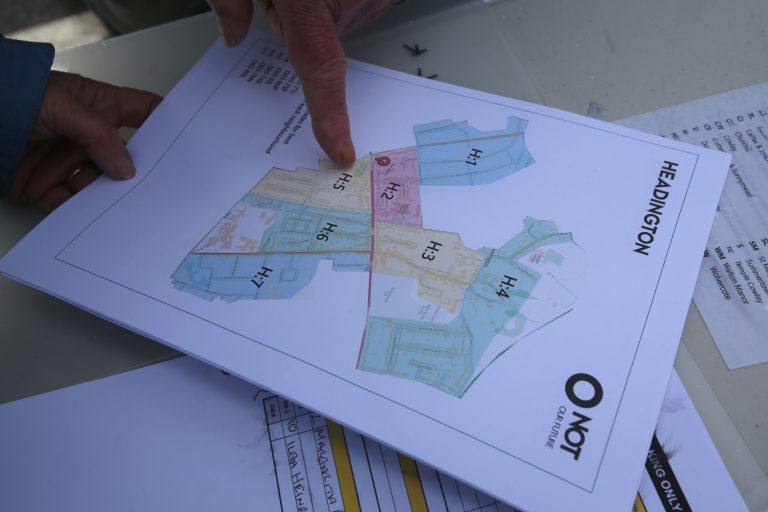Several major cities across the globe are either considering implementing the “15-minute city” concept or already have. As governments become increasingly focused on climate change and sustainability, urban planners are looking for ways to make people less dependent on vehicles as a means to slash carbon emissions, and 15-minute cities have been identified as a means to that end.
The idea however has been met with considerable opposition with experts raising the alarm over how the concept could negatively impact some of society’s most vulnerable.
Carlos Moreno, an associate professor at Sorbonne University Business School in Paris, France is credited with originating the idea which gained traction during the COVID-19 pandemic and is lauded by outfits such as the World Economic Forum (WEF).
Moreno was awarded the Obel Award in 2021 for originating the concept. The Obel Award is an “international prize for architecture that honours recent and outstanding architectural contributions to human development all over the world.”
Wikipedia defines a 15-minute city as a “residential urban concept in which most daily necessities and services, such as work, shopping, education, health, and leisure” are all located within an “easily reachable 15-minute walk or bike ride from any point in the city.”
Success
You are now signed up for our newsletter
Success
Check your email to complete sign up
European countries, including the UK and France, are forging ahead with the concept while many North American cities have tabled plans to either implement the scheme totally or in part.
However, urban planners in North America are saying that the plan — which has yet to be proven to work in European cities — will not translate well to North American cities and could exacerbate inequality among other things.
READ MORE:
- Understanding Alberta and Ontario Digital ID Systems
- Greece Moves Toward Social Credit as Digital IS App Replaces Drivers Licenses
- Biden’s Recent Executive Order on Digital Currencies Panned as Dangerous, People Should Be ‘Worried’
The case against 15-minute cities
Toronto-based urban designer, Jay Pitter, while speaking at the CityLab 2021 conference, which was hosted by Bloomberg Philanthropies and the Aspen Institute, said the idea could be both “presumptive and colonial.”
“I’m a champion of the hyper-local, as certainly we need more resilient, climate change-resistant cities,” he said at the time but added, “However, I am averse to this concept. It doesn’t take into account the histories of urban inequity, intentionally imposed by technocratic and colonial planning approaches, such as segregated neighborhoods, deep amenity inequity and discriminatory policing of our public spaces.”
“We’ve actually designed cities to create buffers between us across race and class specifically, and this proposal completely ignores a century of planning interventions that have actually concretized deep social divisions between people,” he said.
While Pitter focuses on the social justice aspects of the 15-minute city, others raise more practical concerns.
Dr. Jordan Peterson, best-selling author, YouTube phenom and clinical psychologist recently took to Twitter to express his concerns over the concept being implemented in Edmonton, Alberta.
“It’s often 40 bloody below in Edmonton. Who’s going to bike? Your grandmother? I don’t think so,” he wrote, adding that, “These 15-minute cities are just another fad hijacked by wannabe authoritarians using threats of apocalyptic doom to mask their desire for power,” Peterson told his over 3.8 million followers.
Others argue that 15-minute cities negatively impact people managing a disability.
Anna Zivarts, a disabled woman wrote for Bloomberg, “When I hear ‘15-minute city,’ I cringe, because what comes to mind are high-cost neighborhoods like Seattle’s Capitol Hill, or Park Slope in Brooklyn. These are places where those wealthy enough to afford to live there can stroll to their favorite bar or pastry shop, walk their dog in the park, and then drive their ‘green’ electric vehicle to the mountains every weekend to go hiking.”
“It’s easy for privileged folks to support this vision of urbanism without making any sacrifices, without addressing the profound disparities of race and wealth and disability that make this 15-minute city utterly inaccessible to so many,” she lamented.
READ MORE:
- China’s Choice Antiviral Pill Is Causing New COVID Mutations, Study Finds
- Chinese Android Phones Awash With Spyware, New Research Reveals
- Politicians Hype Threat of Chinese Spy Balloon That Floated Across US Before It Was Shot Down
Baseless ‘conspiracy theories’
Concerns being voiced by the general public about the scheme being implemented have been panned as ‘conspiracy theories’ by much of the mainstream media and Moreno himself.
“Since the start of 2023, the concept of the 15-minute city has been subject to conspiracy theories, produced and shared by people already well known for spreading disinformation about COVID, the climate, vaccines and politics,” Moreno recently said, adding that,”The only arguments they have are lies.”
The primary concern being voiced is that 15-minute cities will be used to restrict people’s free movement, an idea that has been labeled a conspiracy theory but the “theory” has been alluded to in documents produced by the City of Ottawa, Canada’s capital, that plans on implementing the scheme.
The city says that its plan “doesn’t suggest that people shouldn’t use vehicles when needed” then says the plan will look at “distributing permissions” which many interpret as a plan to permit certain types of travel while limiting others.
The documents prompted Daniel Ari Freheit, a Toronto attorney to tweet, “15-minute cities are not a conspiracy. They will involve new unprecedented limits on vehicle use – ‘permissions’ and ‘restrictions’ – that will require full transparency.”
The documents reveal that the city’s plan is to ensure that “more than half of all trips will be made by sustainable transportation.” “Sustainable transportation” includes walking, cycling, transit or carpooling and the aim is to “coordinate land use and transportation planning and support the tangible shift in mobility modes and other mobility goals.”

‘Not Our Future’
In the UK, where an array of new policies around the 15-minute city concept are being implemented, residents are protesting its implementation in addition to demanding action over COVID-19 measures forced upon them during the pandemic.
In early January this year, a group of protesters in Oxford, England launched the “Not Our Future” leaflet campaign. They canvassed communities and distributed leaflets detailing their concerns about the scheme.
Oxford authorities have proposed implementing the 15-minute city scheme in 2024 by installing “filters” that will limit where people can drive.
“Residents will also be able to apply for permits to drive through filters and into other neighbourhoods for up to 100 days a year, while Oxfordshire residents will be able to secure permits for up to 25 days a year,” the The Oxford Student wrote adding that, “Free travel through filters will be allowed by bus, bike, taxi, scooter, and walking.”
Oxford’s plan does indeed restrict people’s movement based on the types of transportation available to them.
Exemptions will be made available for “carers, blue badge holders, business, and emergency services,” The Oxford Student wrote.
















